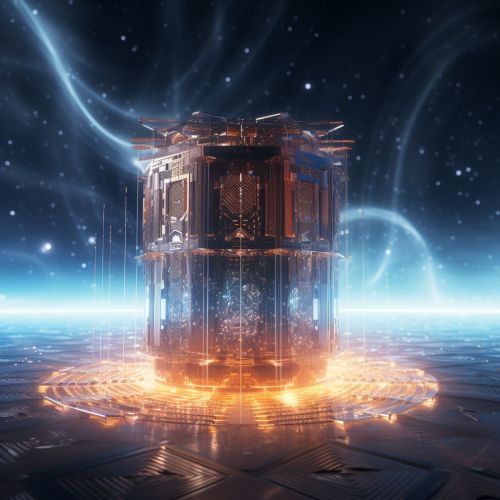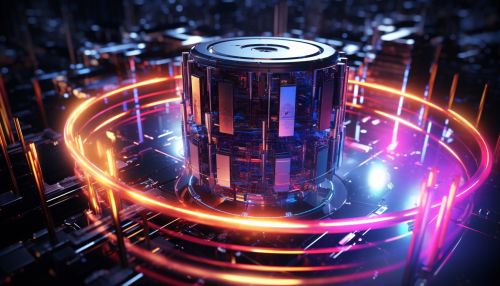Quantum Machine Learning
Introduction
Quantum machine learning is a subfield of quantum computing and machine learning that explores how quantum phenomena can be used to improve machine learning algorithms. It is an interdisciplinary field that brings together ideas from quantum physics, computer science, and data science.


Quantum Computing
Quantum computing is a type of computation that makes direct use of quantum-mechanical phenomena, such as superposition and entanglement, to perform operations on data. Quantum computers are different from binary digital electronic computers based on transistors. Whereas common digital computing requires that the data be encoded into binary digits (bits), each of which is always in one of two definite states (0 or 1), quantum computation uses quantum bits or 'qubits', which can be in superpositions of states.
Machine Learning
Machine learning is a type of artificial intelligence that provides systems the ability to automatically learn and improve from experience without being explicitly programmed. Machine learning focuses on the development of computer programs that can access data and use it to learn for themselves. The process of learning begins with observations or data, such as examples, direct experience, or instruction, in order to look for patterns in data and make better decisions in the future based on the examples that we provide.
Quantum Machine Learning
Quantum machine learning is the integration of quantum algorithms within machine learning programs. The most common use of the term refers to machine learning algorithms for the analysis of classical data executed on a quantum computer, i.e., quantum-enhanced machine learning. While machine learning algorithms are used to compute immense quantities of information, quantum machine learning increases such capabilities intelligently, by creating new ways to interact, understand, and classify data.
Quantum Algorithms in Machine Learning
Quantum algorithms in machine learning are expected to provide superior computational complexity over their classical counterparts. Quantum versions of machine learning algorithms can speed up the process of finding a trained model for certain tasks. For instance, the quantum version of support vector machines, known as quantum support vector machines (QSVM), can be exponentially faster than classical support vector machines.
Quantum Data in Machine Learning
Quantum data in machine learning refers to the use of quantum systems or quantum phenomena as data for machine learning algorithms. This includes, for example, the use of quantum states or quantum systems as inputs for machine learning algorithms, or the use of machine learning algorithms to predict quantum states or properties of quantum systems.
Challenges and Future Directions
Despite the potential advantages of quantum machine learning, there are still many challenges to overcome. These include the difficulty of implementing quantum algorithms on current quantum hardware, the lack of quantum data for training quantum machine learning models, and the need for more research on how to best use quantum phenomena in machine learning. Future directions for quantum machine learning research include the development of new quantum algorithms for machine learning, the exploration of quantum data in machine learning, and the integration of quantum machine learning into more applications.
